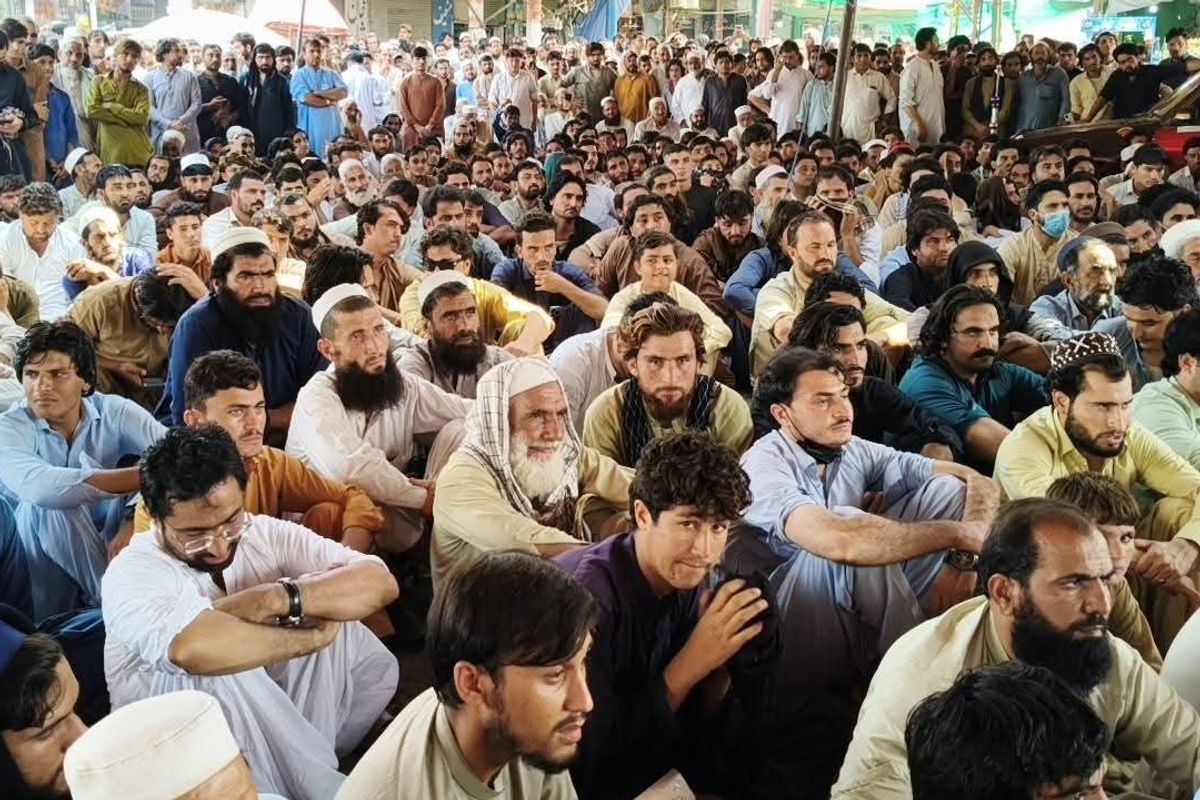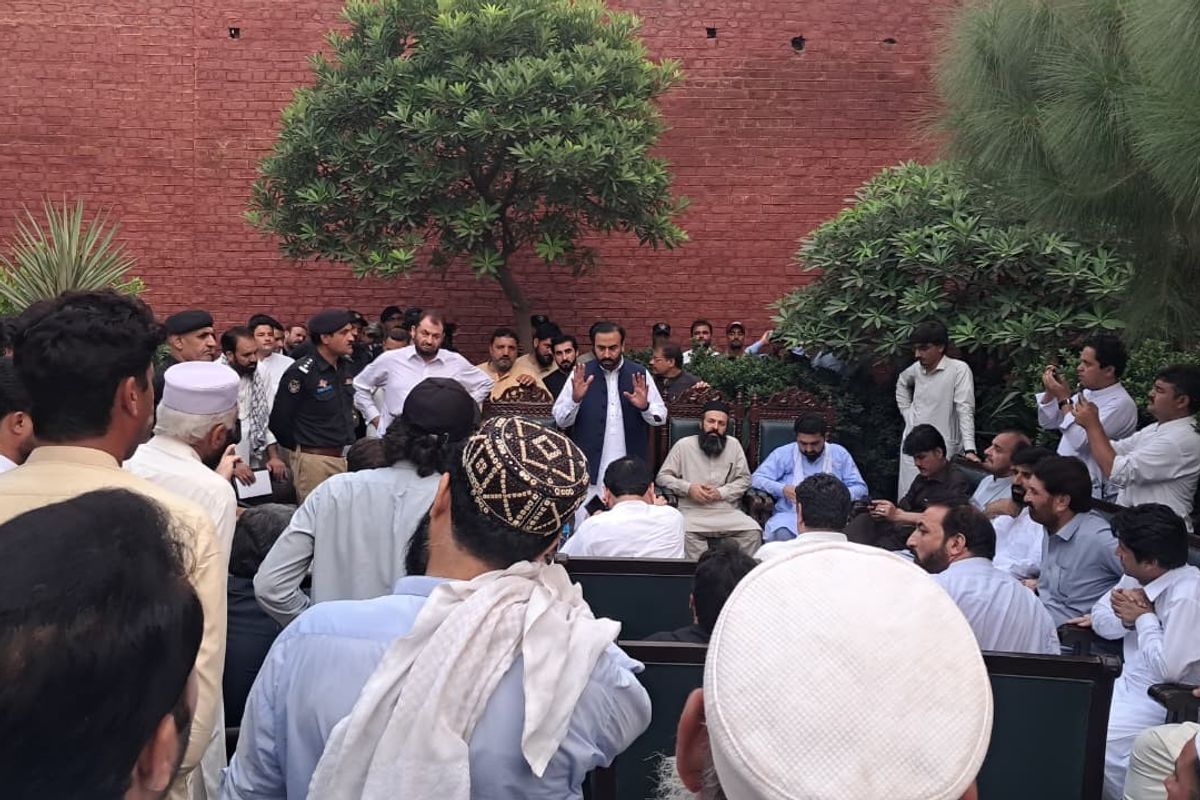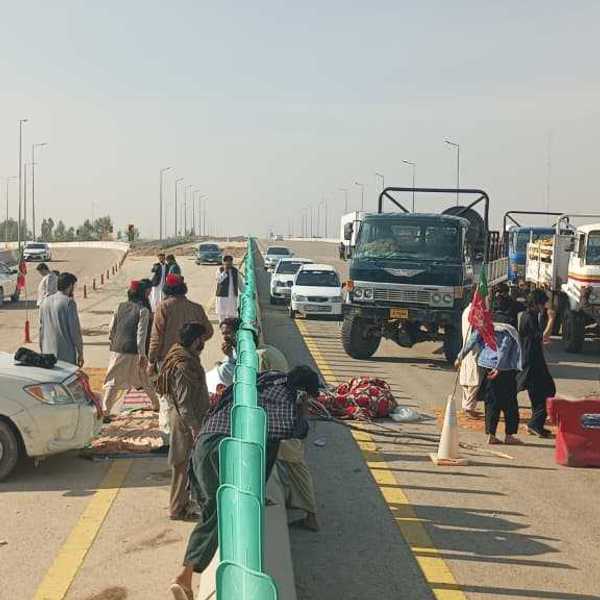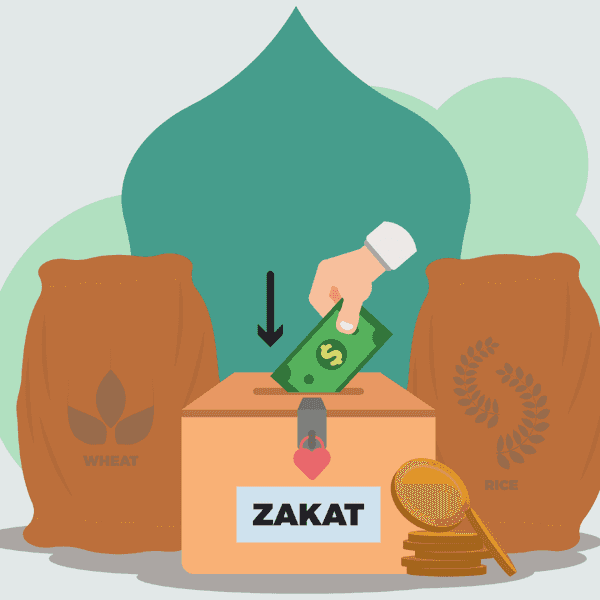Protesters in Pakistan’s Khyber district demand justice after deadly Tirah Valley airstrike
The CM House confirmed that a jirga of elected officials would meet military leaders to chart a path for regional peace and security

Kamran Ali
Correspondent Nukta
Kamran Ali, a seasoned journalist from Khyber Pakhtunkhwa, Pakistan, has a decade of experience covering terrorism, human rights, politics, economy, climate change, culture, and sports. With an MS in Media Studies, he has worked across print, radio, TV, and digital media, producing investigative reports and co-hosting shows that highlight critical issues.

The provincial government announced PKR 10 million compensation per victim’s family.
Nukta
A sit-in continued in Pakistan’s northwestern Khyber district after talks with government officials failed to satisfy protesters demanding accountability over the alleged killing of 21 civilians in an airstrike in Tirah Valley.
The demonstration reflects mounting local anger and raises broader questions about civilian safety in conflict-prone border regions.
A negotiation team appointed by Khyber Pakhtunkhwa’s chief minister - including the provincial law minister, the commissioner of Peshawar division, and local lawmakers - held discussions with protest leaders and tribal elders at Bara Bazaar.
Despite hours of deliberation, the team failed to reach an agreement, though officials assured demonstrators that the chief minister would visit the families of the victims.
Protesters’ demands
Hashim Khan Afridi, leader of the sit-in, emphasized that the primary demand is a personal visit and apology from the chief minister. “The delegation assured us that the chief minister will come within a day or two, at which point we will present our other demands,” he said.
Afridi reiterated calls for an end to military operations in Tirah Valley, practical measures to prevent targeted killings, the reduction of military authority in the area, and the recovery of missing persons.

Abdul Ghani, a Pakistan Tehreek-e-Insaf (PTI) lawmaker representing the protestors, added further demands, including registering a First Information Report (FIR) against the Frontier Corps’ inspector general, the Peshawar corps commander, and the area’s brigade commander. He also called for a written apology from the military leadership and assurances that such incidents would not recur.
Jirga to meet military officials
Afridi announced that the government delegation had promised that protest representatives would be taken to meet senior military officials, where their demands could be formally presented. The CM House confirmed that a jirga - comprising elected representatives, political leaders, and local elders - would hold talks with military leadership to determine a future course for peace and security in the region.
The provincial government also announced a compensation package of PKR 10 million for each victim’s family.
However, Khan Wali Afridi, another protest organizer, rejected the compensation, stating, “We don’t want compensation; we want the right to live peacefully.”
Afridi warned that the protest would continue until the chief minister’s visit. “If our demands are not met after the meeting with the military, we will resume the protest and march towards the Corps Commander House in Peshawar,” he cautioned.
Backdrop to the protest
On September 22, at least 21 people, including women and children, were killed in an overnight explosion in Tirah Valley, a mountainous region near the Afghan border. Eyewitnesses and tribal leaders allege that Pakistani military jets carried out airstrikes in the Aka Khel area, destroying five houses and killing members of three families.
The military, however, denied carrying out airstrikes, labeling reports as “propaganda” against the armed forces. According to the Frontier Corps, the blast occurred inside an improvised explosive device (IED) manufacturing facility operated by militants.
The explosion reportedly killed 12 to 14 militants and caused collateral damage, resulting in 8 to 10 civilian deaths from families allegedly used as human shields.







Comments
See what people are discussing